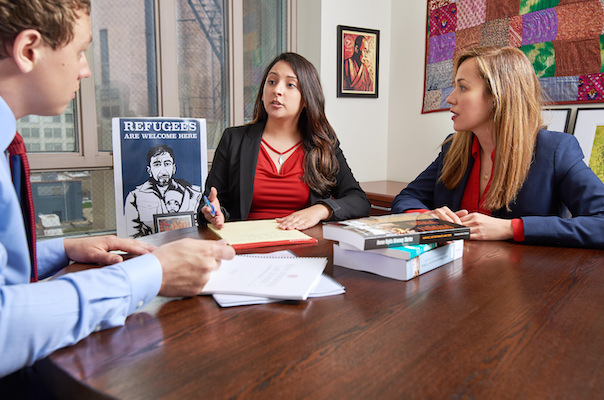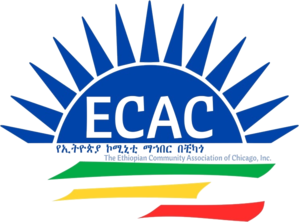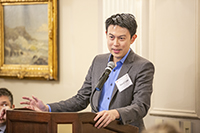
More than 75,000 Afghans have been resettled in the U.S. since the Taliban retook control of Afghanistan in August 2021. In the nine months since, local human rights organizations have responded with aid, but these organizations often need help addressing gaps in refugee services, like legal questions surrounding asylum and immigration processes.

That’s where UIC Law’s International Human Rights Clinic (IHRC) can help.
Under the leadership of Professor Sarah Davila A. and Staff Attorney Alejandra Palacios (JD 2018), the IHRC partnered with the Ethiopian Community Association of Chicago (ECAC) to train its staff to identify when asylum and other immigration issues arise for Chicago’s local Afghan refugees.
“Talking to Chicago refugee advocates, we recognized a gap in outreach and training on asylum and immigrant justice-related matters,” said Professor Sarah Davila A., UIC Law’s IHRC Director. “That’s exactly why we’re here. These outreach opportunities are a perfect opportunity for human rights students to learn how to become human rights advocates in the field.”
ECAC, a non-profit community-based organization operating on the north side of Chicago, has been providing local Afghan refugees access to basic necessities like housing, food, and health-related services, but it was looking for support on associated legal issues. After initial discussions with UIC Law’s IHRC team, a team of five student clinicians prepared materials for a pair of presentations focused on supporting ECAC’s work to resettle and support Afghans in the Chicago area.
On March 18, Staff Attorney Alejandra Palacios accompanied 2Ls Maria Roman and Matthew Lodwich to ECAC’s center in Rogers Park to offer ECAC staff and volunteers an overview of immigration legal processes that addressed asylum and related immigration and refugee issues. On April 1, the IHRC team, joined by 2L Savannah McWhorter, provided ECAC staff and Afghan refugees an overview of family-reunification resources, including solutions available to refugees who had been separated from their families during the Kabul Airport evacuation. The presentation was made in English, Pashto and Dari.
“The turnout [on April 1] was larger than I expected. There was clearly a need for the information we provided,” offered Ms. Roman. “I am glad we were able to provide the resources and information in their language and meet that need, but it is clear there aren’t enough resources available to assist this population.”
“They thanked us for the information we provided,” added Mr. Lodwich. “It felt great knowing we helped them gain more understanding of the general immigration processes that could impact their lives.”
The IHRC continues to support refugee resettlement, asylum representation, and advocacy in immigrant justice matters and to advocate for human rights in the U.S. and around the world.



